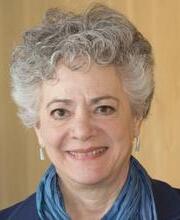Barbara Grosz

Professor Grosz works in Artificial Intelligence, with a focus on Collaborative Systems and Human-Computer Communication. Her research aims to develop the capabilities needed for computer-agent systems to function as intelligent, helpful team members over the long term and in uncertain, dynamic environments. It has yielded theories and models of collaboration that provide the foundations for constructing systems able to work with each other and their users.
Professor Grosz has made seminal contributions to the fields of natural-language processing and multi-agent systems. She developed some of the earliest computer dialogue systems and established the research field of computational modeling of discourse. Her work on models of collaboration helped establish that field and provides the framework for several collaborative multi-agent and human-computer interface systems. Her research currently is focused on exploring ways collaborative multi-agent systems and collaborative interfaces can improve the systems patients and physicians use for health care planning and communication.
A member of the National Academy of Engineering and the American Philosophical Society, Professor Grosz is a fellow of the American Academy of Arts and Sciences, the Association for the Advancement of Artificial Intelligence, the Association for Computational Linguistics, the Association for Computing Machinery, and the American Association for the Advancement of Science, and a corresponding fellow of the Royal Society of Edinburgh. She received the 2009 ACM/AAAI Allen Newell Award, the 2015 IJCAI Award for Research Excellence, and the 2017 Association for Computational Linguistics Lifetime Achievement Award.
Professor Grosz is known for her role in the establishment and leadership of interdisciplinary institutions She co-founded Stanford’s Center for the Study of Language and Information and was founding dean of science and then dean of Harvard’s Radcliffe Institute for Advanced Study, which developed the Academic Ventures Program under her leadership. She co-founded Harvard's Embedded Ethics program, which integrates teaching of ethical reasoning into core computer science courses.
Professor Grosz is also known for her contributions to the advancement of women in science. She chaired Harvard FAS’s Standing Committee on Women, producing the 1990 Report on Women in Science. She subsequently chaired the 2005 Harvard Task Force on Women in Science and Engineering, producing a report comprehensive in its coverage of all Harvard schools and all levels of participation in the academy from undergraduate students to senior faculty.
